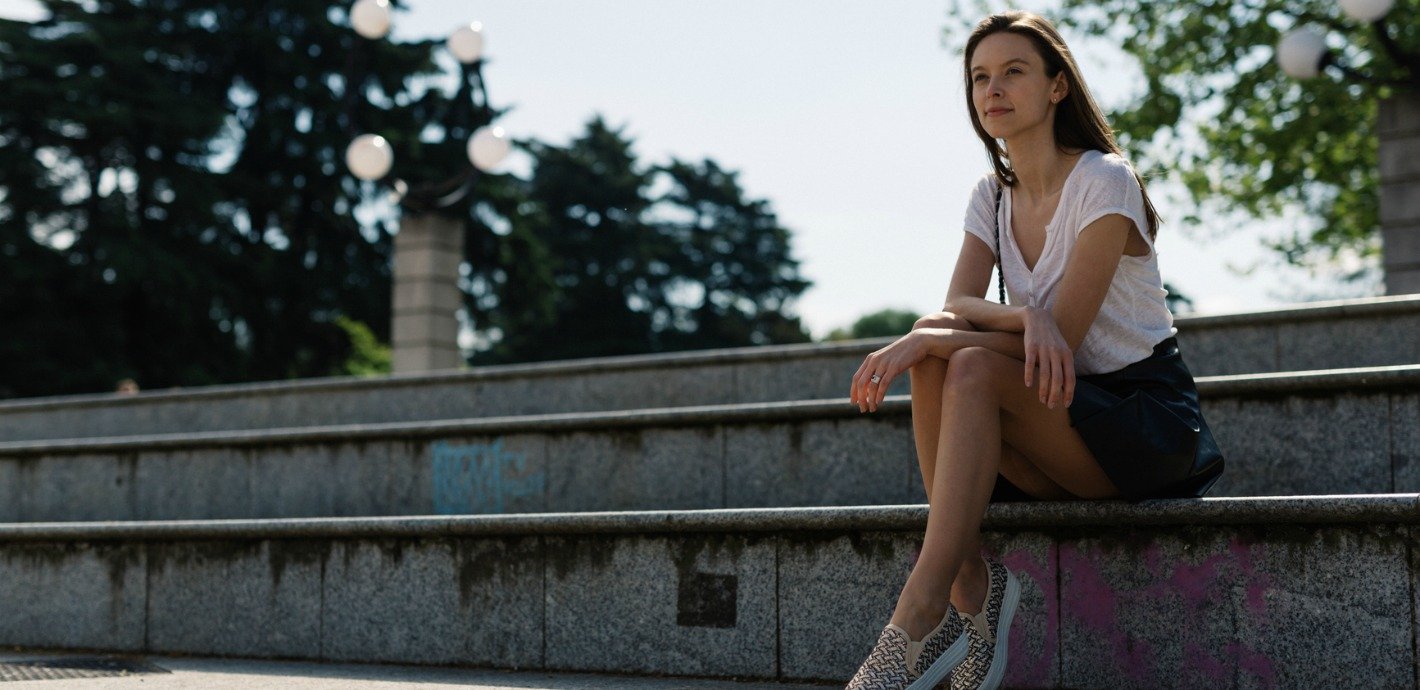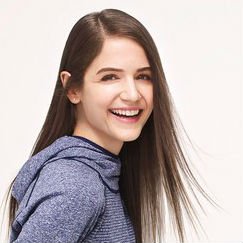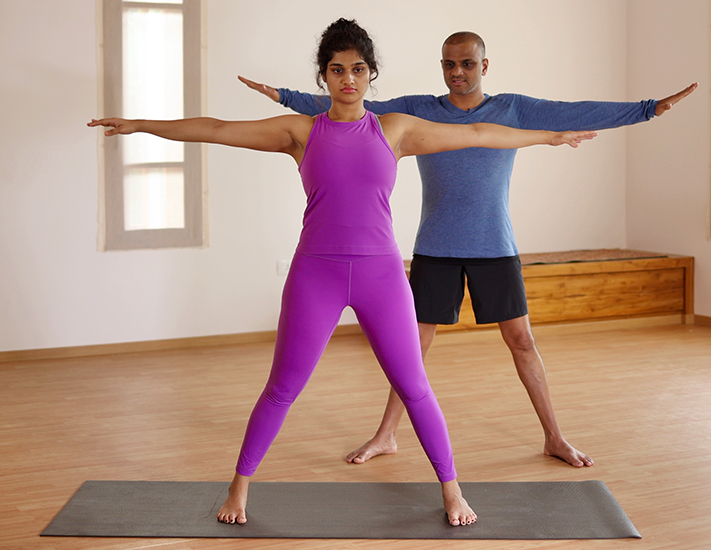The last time I had a best friend, I was in sixth grade. Jenn and I talked about our crushes, performed in the school play together, had sleepovers, went to the mall—you know, typical best friend stuff. When school ended in June, my family moved from Pennsylvania to Georgia. Within a year, I lost touch with Jenn and all of my childhood friends. At the same time, I had trouble connecting with people at my new school. While I made some friends, I had no one single person who made me feel 100 perfect comfortable sharing anything (and everything) without fear of judgment.
In junior high and high school, I was so sensitive I didn’t stand for any chance of embarrassment or negativity, like the time Jaymi told my crush I liked him, or when Jenny made snide comments about my brother. After those instances, I basically cut them out of my life. In high school, I made efforts to socialize with anyone and everyone, but I kept things very surface level. I’d put up walls and not let anyone get too close to me. That way, they couldn’t hurt me.
When I left for college—my dream school in Illinois—I hoped things would be different. “Friendships develop when there’s a sense proximity and community. That’s why friendships in college are so easy and natural,” says Andrea Bonior, Ph.D., a licensed clinical psychologist and author of The Friendship Fix. That wasn’t the case for me, unfortunately. Although I casually chatted with people in class or the dining halls, I figured keeping to myself was my greatest defense. School was black and white; it couldn’t gossip about me; it couldn’t turn its back on me. I preferred to spend my down time by myself, walking along the lake, cooking, reading, or talking to my mom. We talked almost every night, which may not be so uncommon. According to a 2015 survey of 1,000 millennials, 55 percent of them consider a parent a best friend.
In adulthood, I have developed friendships through work, yoga, and friends of friends. It’s been easier for me since we have something or someone that I really care about in common. This allows me to start with “safe” conversation topics and then, if I feel I might be able to trust them, slowly start opening up about more personal things, such as dating. I’m OK with being vulnerable now more than ever, partly because I’ve developed a thicker skin and am more confident than before. Still, I face ups and downs, including losing a group of friends after a breakup, and being completely shut out by a woman I was very close to, with no explanation.
Related: How to Know When You Need to End a Friendship
I continue to test the waters with friends and I’ve become closer to some, but I’m still without a BFF.
Turns out, I’m not alone: Surveys have found that somewhere between 6 and 10 percent of people say they don’t have a best friend. “I don’t think it’s typical for adult to have one clear, delineated best friend, especially since lives are so transient today,” Bonior says. “It all depends on the person. To some, it’s important to have a deep level of intimacy with one person. Others might have a bunch of lower-level friends but nobody rises to that extremely emotional level of best friend.”
“There’s also more of a hybrid today,” she adds. “Your sister or your cousin might be your best friend, but you don’t consider them that because they’re also family. Or you might consider your best friend to be someone you went to college with, but you really don’t talk [as much].”
For those like me who have considered a parent a best friend at some point, it’s not necessarily a bad thing, experts say, but you should examine that relationship. “Is there a reason your parent is your best friend?” Bonior asks. “It could be that you have an amazing, strong relationship and similar personalities. Or it could be that you are co-dependent and neither of you has other friends.” Plus, she points out, chances are you’re going to outlive your parents. “When that time comes, you want to have a support system beyond them,” she adds.
Life changes like moving, getting a new job, tying the knot, or having kids can easily lead to peer friendships growing apart. And even though we have technology to keep in touch, one of biggest challenges for adults is finding time to put into friendship maintenance, Fehr says. “We are socialized to think family needs to come first and that we need to honor our work commitments, and often that doesn’t leave time to keep up with a friendship, no matter how motivated both people are to maintain it.”
The main thing both Bonior and Fehr emphasize is that it is essential to have friends. “People fare much better in physical, mental, and emotional health when they have close ties, and the research shows it benefits people to have more than one close tie,” Fehr explains. Science confirms that a strong social circle can help you live a longer, healthier, less stressed life. As long as you feel supported and have relationships that are satisfying to you, you don’t necessarily need one particular go-to person.
For people who would like closer friendships or even a bestie, start by focusing on what you’re interested in, experts say. Maybe that’s a taking fitness class regularly, going to the dog park the same time every weekend, volunteering, or joining a meeting up group. The female-friendly dating app Bumble even offers a BFF mode to help you find a nearby best friend. As someone who begrudgingly uses Bumble in an attempt to meet men, I found meeting a friend on there felt a little too forced. Photos and a short description (which not all women include for some a puzzling reason) are not enough for me to make a connection, and I already feel it’s too much work to find guys on the app.
Meeting friends, however, isn’t really the problem—it’s following up, Bonior says. After all, we’re not often taught how to ask someone out platonically. “You have to be willing to go beyond small talk,” she says. “You can talk about the weather for years. But if you dig deeper, it can turn into a friendship. So follow up on something they mentioned before. Or reveal something about yourself that makes you vulnerable, something personal they can respond to.” In that sense, messaging on the app may make the initial conversation easier, but a deeper relationship still requires a genuine personal connection.
“There are personality factors that can impede friendship,” Fehr says. “Those who are shy, reluctant to trust others, introverts, or socially anxious. Without intending to, they won’t make as much eye contact, won’t smile as much, and therefore send the message, ‘I’m really not that interested in getting to know you.’” Maybe that’s why in high school I often heard others saying I was stuck up or that I thought I was “Little Miss Perfect” behind my back? Really I was horribly insecure and felt far from perfect. It hurt like hell to hear people say these things, and that made me retreat further into myself and only share things that people couldn’t use against me.
It has taken me years to learn to put myself out there and trust others. There’s always that fear of “What will she think of me?” I still have those thoughts even when talking to close friends. But I’ve known them long enough to know they won’t turn on me. So little by little, I share more with them. I’m not opposed to finding my one true confidant, if it happens naturally. And if it doesn’t, I have the support system that I need right now. For me, it’s better to have a tribe of close friends. I find that the more I share with each individual in my inner circle, the more I open up with everyone. I have those who I see regularly, and others who live across the country, but will drop everything to Skype on short notice. There are the ones who are more of my workout buddies and then the few who I turn to on those “what the heck am I doing with my life?” days. It takes a little work, but it’s so worth it to share many different and unique connections with others, and I’m grateful for all of them—each and every one.








Comments (0)